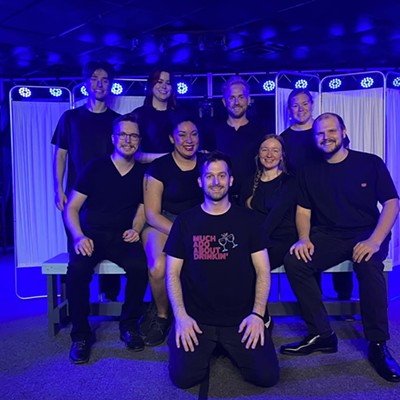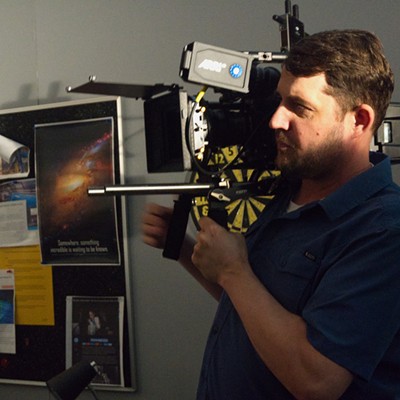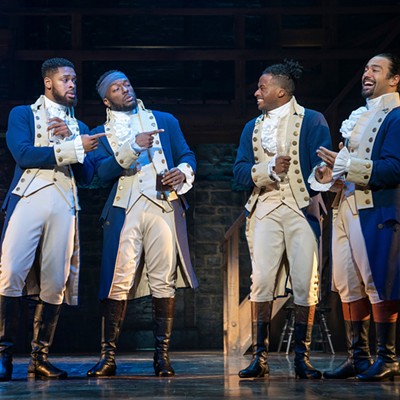It's no surprise that "Love Letters" was nominated for a Pulitzer back in the late 1980s "? it's a fantastic play. Its original and elegant depiction of a lifelong romance between Melissa Gardner and Andrew M. Ladd III is told exclusively through a correspondence that begins in the second grade in the 1930s and continues for 50 years, creating an epic but utterly relatable story line.
Melissa is born into a wealthy but unstable family and is prone to impulsive behavior. Andrew, on the other hand, has a loving but less-well-off family and is more conservative than she.
There are only two actors in "Love Letters," so the burden on the performances to carry the show is great. The strength of text helps, as does the stripped-down style of the performance, which consists of the two actors sitting at a desk, reading aloud their correspondences to each other. Despite never leaving those seats, the actors manage to play out a number of dynamic and complex scenes. They just don't do it on the stage. They do so in the minds of the audience. The way their friendship develops and changes over the years is fascinating and often unexpected.
Perhaps even more interesting is what's left unsaid, between letters and between the lines. The audience is left to fill in some of the blanks using their own imaginations, based on clues and inferences provided in the letters and in the vocal performances. The result is a play that largely unfolds in the heads of the viewer, allowing for different interpretations and reactions, which creates a richer and more interactive and less typical theater experience.
LIVES OR DIES
The show still lives or dies on the actors' performances, and Jeanie Cooper and Rob May both deliver. Cooper is magnificent, subtly embodying the changes in Melissa over the course of her life. She also manages to keep Melissa sympathetic, funny and sexy, despite a number of flaws. May's performance isn't as dynamic, but Andrew isn't a dynamic guy. He's steady and focused and usually errs on the side of caution, often playing the straight man to the more impetuous Melissa. May is at his best once his character has achieved some success as an elected official, perfectly capturing the cadence of a politician.
It should be said that you won't be seeing either Cooper or May onstage, as Jewel Box is rotating out eight pairs of actors throughout the three-week run of "Love Letters," promising a variety of different takes on these characters and their story, making a play already worth seeing twice a must for return viewings.
"Love Letters" is a great play because it deviates from the usual syrupy silliness that stands in for love in most theater and film, and gives us something more delicate and meaningful. This subtlety was apparently lost on whoever opted to paint the stage pink.
Another disappointment is the poor combination of warm overhead lighting and the cold fluorescent desk lamps that Melissa and Andrew use to read their letters. The same lamps were turned at an angle that made it difficult to focus on the actors faces. Furthermore, the lighting is static, missing a major opportunity to emphasize certain scenes or just show the passage of time with a simple change in color.
To be clear, these small issues should deter no one. Even if the theater may be a little cold, "Love Letters" is sure to warm the heart of all who see it.
"?Eric Webb










